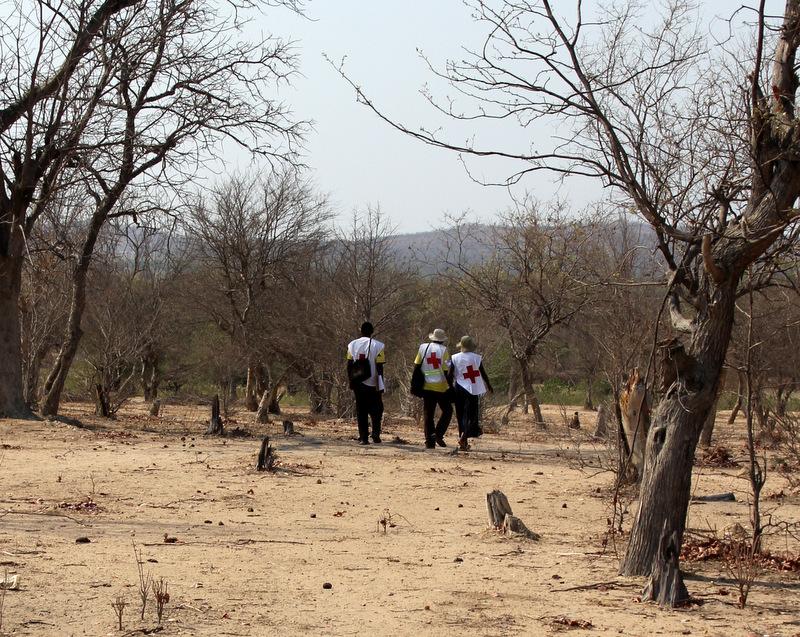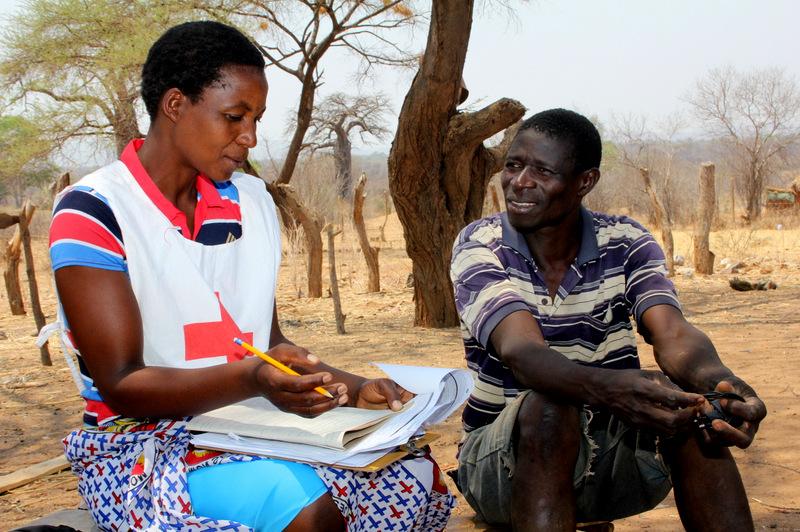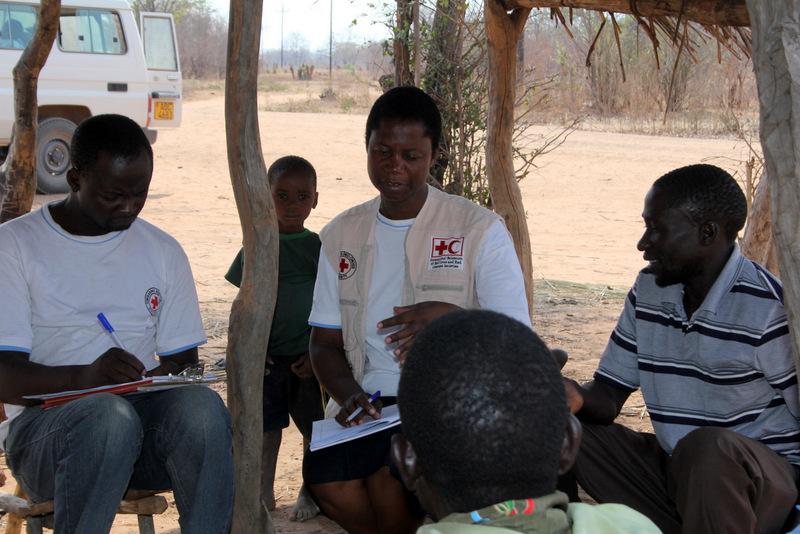As a communicator for the American Red Cross, my job is to tell the stories of the work we do around the world. Most of the time, I’m in Washington D.C. trying to describe work being done thousands of miles away by incredibly smart, technical people. People who, frankly, use a lot of acronyms. M&E (monitoring and evaluation), DRR (disaster risk reduction), DMCs (disaster management committees). It’s really critical stuff, but many times I find myself lacking the words to justly describe what exactly we’re doing.
So when I heard I was going to see a baseline survey as part of the BRACES (Building Resilient African Communities—those acronyms again!) program in Zimbabwe, I wondered how I would describe it? How I could explain the human impact of something so technical? As I quickly learned, however, at the heart of baseline surveys—and in fact, at the heart of the Red Cross—is people helping people. And that’s something I can talk about all day long.
My morning starts off at 6 AM local time, bright, early, and already pushing 90 degrees. Pamla, the Zimbabwe Red Cross Society’s one M&E (see above) superstar, was taking me out for a day of surveying. Currently operating in two wards of the Binga district, an area near the northwest border, the BRACES program—which helps prepares communities to deal with disasters such as drought, climate change and disease—is expanding into a third. ¬
It’s not enough for the Red Cross to show up, help the community, and leave. In fact, that never happens because the Red Cross is the community and the volunteers doing the work are community members themselves. So before providing any type of assistance, the Red Cross works with community members to assess their needs and plan services that are right for them. Aka, baseline surveys.
For Pamla, this means organizing volunteers to interview 150 households. Volunteer Sikhathazile Mahlangu spends half an hour speaking to Samuna Gabwa.
What disasters are you most worried about?
How do these disasters impact your family?
How do you currently deal when faced with these disasters?
The conversation is held in Tonga, the local language, and Pamela leans over and quietly translates for me. Gabwa, a 39-year old husband and father, speaks quickly, clearly interested in sharing his perspective.
Later that day, we meet with a focus group to discuss the community’s needs and how might the Red Cross help. There is no conference room, no video-taped interviews, just 12 local leaders gathered on logs in the shade talking rapidly for over an hour as Pamela listens, a volunteer furiously taking notes.
“Many people will walk close to 13 kilometers (8 miles) for drinking water,” one participant says. “When you come across water, you drink it. Any water. You can’t be concerned about safe drinking water when you are thirsty.”
When Pamla’s work here is done, planning will begin and it is only then that the actual project starts. In addition to providing assistance that is community specific and appropriately directing resources, these surveys will help serve as an impact gauge when the program is completed.
Did we do what we wanted to do?
Is our community more prepared in the face of disaster?
When it comes down to it, baseline surveys are an incredible amount of work, but they are critical and can determine the success or failure of a project.



